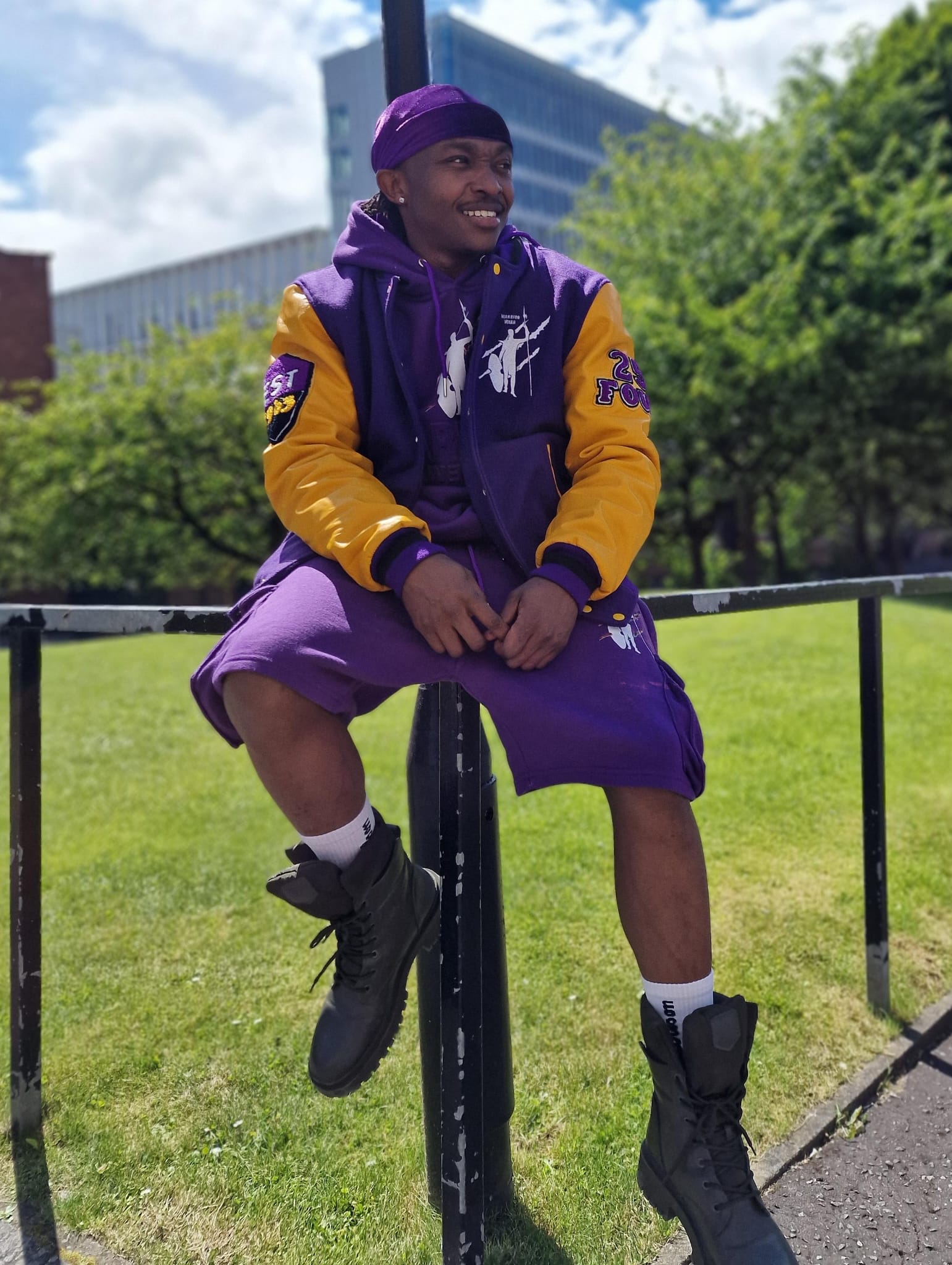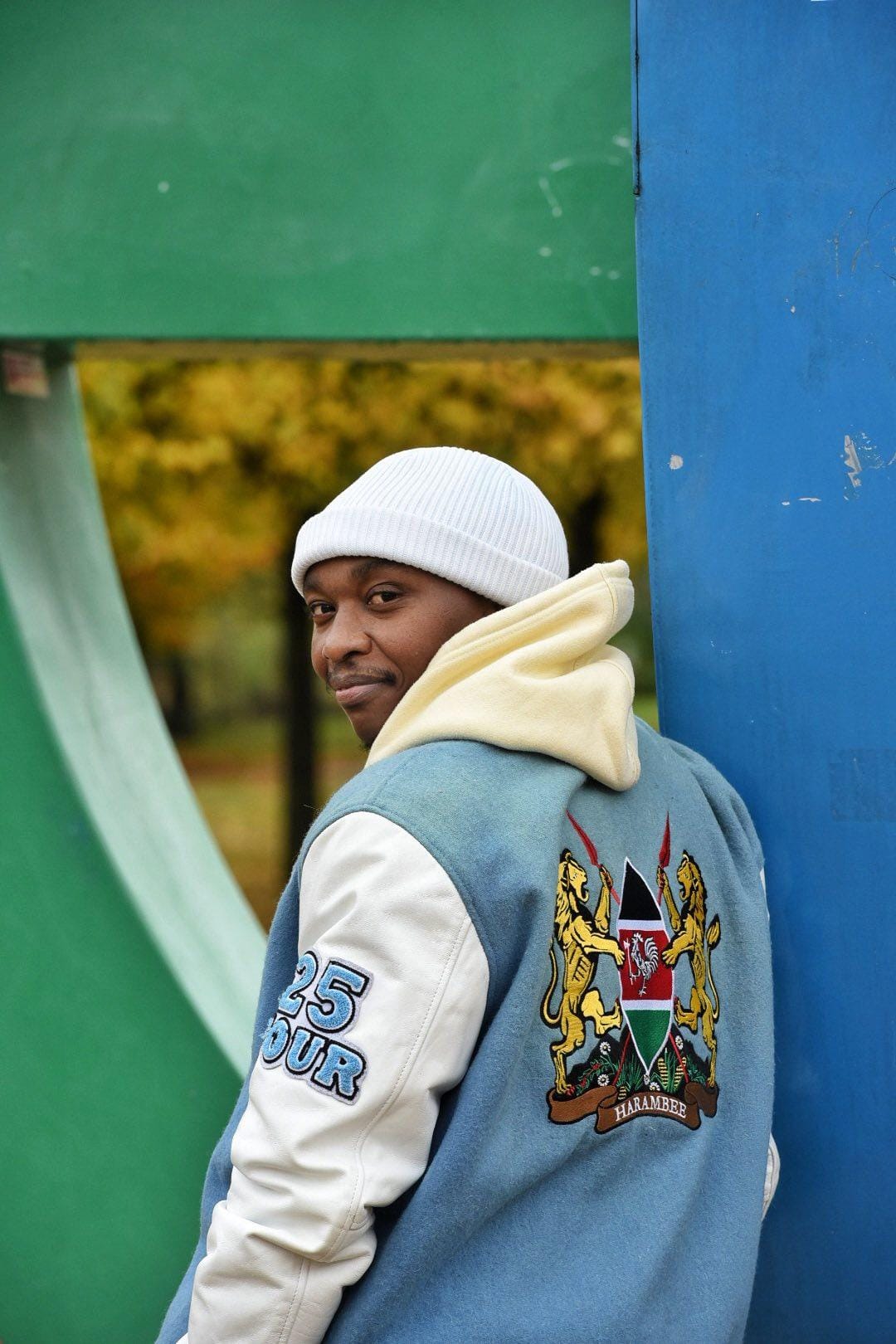UK-based Kenyan designer and radio presenter, Antony Kimani, is putting Kenya on the international map with his innovative creations.
Anthony is the founder of African Warrior Wear, a fashion brand, and MURATA, a Kenyan beer inspired by the traditional Kikuyu drink, Muratina.
In an exclusive interview with Mpasho, Anthony shared the inspiration behind his ventures and their impact. “MURATA is a brand we’re working hard to bring to store shelves in Scotland and the broader UK market. It’s all about introducing a unique and authentic Kenyan product to the world,” he explained.
He elaborated, “Murata—which means ‘friend’ in Kikuyu—borrows its name from muratina. We’re focused on providing a taste of Kenyan culture to a wider audience.”
In addition to African Warrior Wear and MURATA, Anthony is also the founder of Kwetu Coffee, a community-based initiative in Glasgow.
“Kwetu Coffee’s mission is to create employment opportunities through barista training while ensuring ethically sourced coffee from Kenyan farmers. We aim to open stores and secure placements for our products on supermarket shelves in the UK,” he shared.

Antony launched African Warrior Wear during the COVID-19 lockdown after moving to the UK from Dubai. “Warrior Wear was a passion project I started with zero capital during lockdown. I wanted to create something African—specifically Kenyan—that didn’t scream Kenyan but was subtle enough to prompt a conversation if I met a fellow Kenyan on the streets,” he revealed.
The brand’s logo and ethos draw heavily from the Maasai warriors of East Africa, symbolizing strength, resilience, and the warrior spirit.
“I wanted to provide people with stylish clothing that motivates them to push through challenges and embrace their inner strength,” he noted.
Anthony’s journey from Kenya to the global stage has been deeply influenced by his upbringing.
“Growing up in Kenya taught me resilience and the importance of community. The challenges and beauty of life in Kenya shaped who I am today,” he said.
His design style blends boldness, versatility, and practicality. “I want people to feel empowered and comfortable in their clothing, whether it’s for a casual day out or a special event. My designs mix modern aesthetics with traditional influences, creating timeless and unique pieces,” he described.
Navigating Entrepreneurship and Competition Anthony addressed common misconceptions about entrepreneurship: “The biggest one is that you need money to start. It’s not about the glamour—it’s hard work, sacrifice, and constant learning. You need discipline to navigate the ups and downs,” he said.
On handling competition in the fashion industry, he shared: “I embrace competition because it pushes me to innovate. Rather than focusing on competitors, I concentrate on strengthening Warrior Wear’s brand identity and staying true to its values. There’s room for everyone if you remain authentic.”

Future Plans for Warrior Wear
Antony plans to expand African Warrior Wear into international markets and create limited-edition collections.
“I’m looking at collaborations with other designers, brands, and celebrities to solidify the brand’s presence. I also want to advocate for sustainability and ethical fashion practices as the brand grows,” he shared.
His 2025 resolution is to partner with locally established Kenyan brands to retail their products in Europe.
“This ensures Africa sells Africa, providing revenue and exposure to local businesses and artisans,” he emphasized.
Career Highlights and Challenges One of Anthony’s proudest moments was Warrior Wear achieving a net worth of 1 million while being run remotely.
“We started all operations on the phone, including product development and sales. This was during the first year when we also launched the African Warrior Cup in Mathare to support the youth through sports,” he said.
His lowest moment, however, was starting a business in a new country during lockdown with zero capital.
“Every day has been a challenge, but I see them as opportunities for growth,” he reflected. Advice for Aspiring Designers Anthony encourages aspiring designers to embrace creativity and resilience.
“The pros include creative freedom and the joy of seeing people wear your vision. However, the cons involve immense pressure, long hours, and the challenge of balancing practicality with style,” he explained.
He also highlighted the struggles African brands face in entering new markets. “International brands source materials cheaply from Africa but sell them at exorbitant prices. The money doesn’t trickle down to the hardworking people in Africa. We need to change that narrative,” he said.
Education and Future Aspirations Anthony holds a degree in Journalism from the University of Nairobi and is pursuing a Master’s in Immigration Law at Glasgow University.
“Balancing multiple projects requires time management, setting priorities, and delegating tasks. I ensure I maintain a structured schedule to avoid burnout,” he shared.
by PENINAH NJOKI


